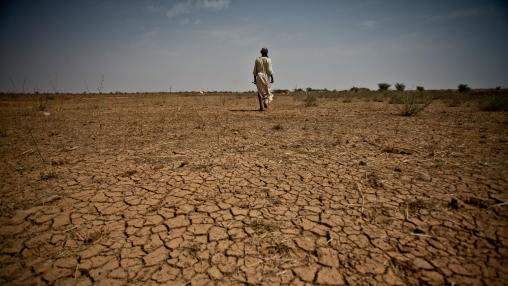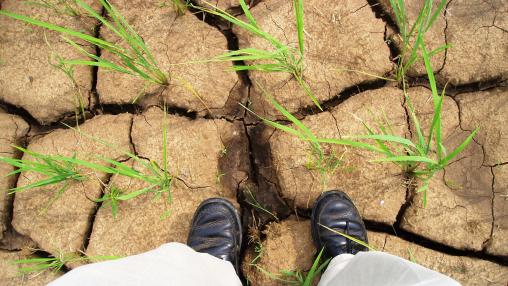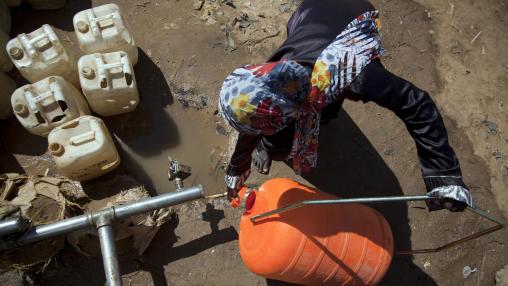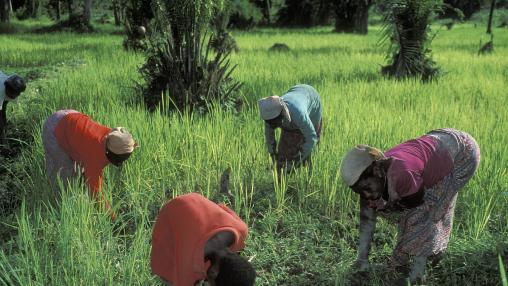Accelerated Action for Food Systems Resilience: Egypt’s plans for COP27 and the role of CGIAR
Unprecedented extreme weather events linked to climate change are contributing to the current global food and energy price crisis and severely impacting livelihoods and food and nutrition security. In this context, expectations are high for the 27th Conference of the Parties of the U.N. Framework Convention on Climate Change (COP27) taking place under the Presidency of the Arab Republic of Egypt.
Call for Action to Address the Global Food Security Crisis
The world is facing a potential food crisis worse than any seen since World War II. With Russia’s devastating war on Ukraine, a historic drought and heat wave in China, and an irregular monsoon season in South Asia, food supplies from several of the world’s largest granaries are highly uncertain and concerning. Global hunger has been rising since 2015, and the number of people facing acute, crisis-level food insecurity has doubled to well over 200 million. Famine is threatening the lives of large populations in the Horn of Africa, Yemen, and South Sudan.

More than 205 Million People Facing Acute Food Insecurity: GRFC Mid Year Update Released
For the fourth consecutive year, global acute food insecurity rose in 2022. As many as 205.1 million people across 45 countries and territories are in IPC Phase 3 (Crisis) or higher food insecurity as of September 2022, according to the Global Report on Food Crisis Mid-Year Update. That represents an increase of 29.5 million people from 2021.
Global Food Policy Report - Malawi Discussion of IFPRI’s 2022 Global Food Policy Report: Climate Change and Food Systems
The 2022 Global Food Policy Report, IFPRI’s flagship report, highlights the urgency of accelerating innovation, reforming policies, resetting market incentives, and increasing financing for sustainable food systems transformation. It sets forth a broad range of policy options for accelerated action by policymakers as well as international forums for policy and investment decision-making.

IFPRI Global Food Policy Report 2022: Accelerating food systems transformation to combat climate change
In 2021, the United Nations Intergovernmental Panel on Climate Change sounded the alarm on a looming crisis: Climate change is generating a “code red for humanity” that requires urgent action. Food systems are deeply entwined with this crisis. In many regions, especially in the developing world, climate change has already started to reduce agricultural productivity and disrupt supply chains, putting pressure on livelihoods and threatening to significantly increase hunger and malnutrition, making adaptation efforts crucially important.
AFRICA DISCUSSION - 2022 GLOBAL FOOD POLICY RESEARCH: CLIMATE CHANGE & FOOD SYSTEMS
The International Food Policy Research Institute (IFPRI)’s Africa Regional Office is organizing the Africa discussion of its flagship report, the 2022 Global Food Policy Report (2022 GFPR) on Climate Change & Food Systems, which will be held on June 1st at 12:30-2.00 PM GMT.
Irrigation Investment Policy: Does Scale Matter?
Irrigation has contributed to increased food production, lower food prices, higher rural employment, and overall agricultural and economic growth. It has been a key component of agricultural intensification and transformation in Asia and has the potential to take on the same role in Sub-Saharan Africa.

Global Food Insecurity Hits All-Time High: 2022 Global Report on Food Crises Released
In many places around the world, hunger is worse than ever before.
That’s the message of the 2022 Global Report on Food Crises (GRFC), released this week. The report paints a grim picture of global food security. Almost 193 million people across 53 countries/territories were acutely food insecure in 2021, up nearly 40 million people from 2020. This number represents a new record and is only expected to worsen throughout 2022.
Climate-smart digital technologies for agriculture and food security (CSDAT) of the Africa Adaptation Acceleration Program: New frontiers for the food system
Le Programme d'accélération de l'adaptation en Afrique organise un webinaire intitulé : « Technologies numériques intelligentes face au climat pour l'agriculture et la sécurité alimentaire (CSDAT) : Nouvelles frontières pour le système alimentaire » le mardi 12 avril 2022, de 9h à 10h30 (GMT).

Contract Farming and Environmental Protection: Evidence from Ghana
Over the past three decades, contract farming has grown in popularity with policymakers and development practitioners throughout low- and middle-income countries. Under contract farming schemes, farmers and buyers enter into preharvest agreements regarding the production and sale of agricultural goods. Farmers are thus assured they will have a buyer for their product, and traders and retailers are guaranteed a supply of saleable goods.